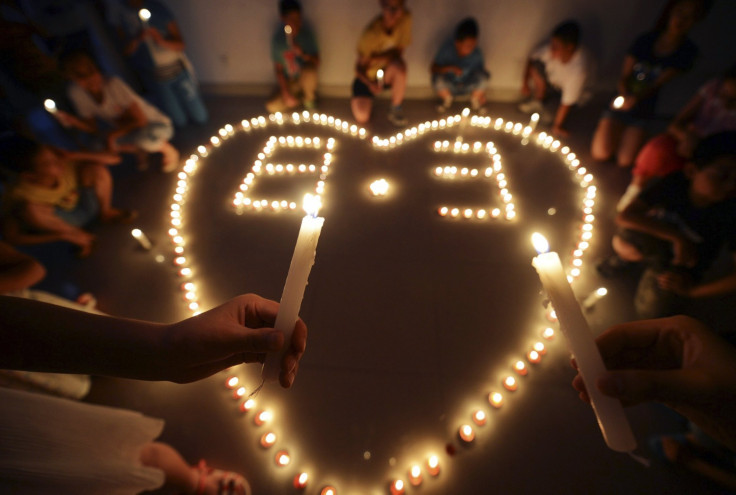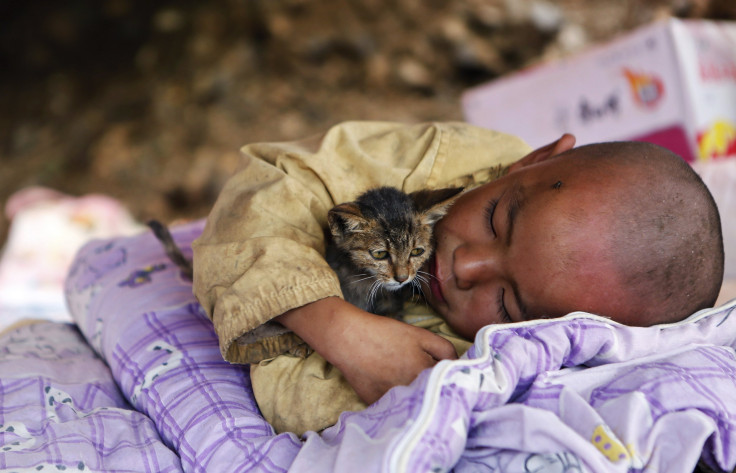Prayer Vigils In China As Death Toll Mounts Following Quake That Buried Villages In Diverse Yunnan Province [PHOTOS]

Rescuers continued to search for survivors in vain on Wednesday, three days after a devastating earthquake in a rural southern Chinese province toppled buildings and buried homes in mud and debris. As hope of digging out the living began to crumble, survivors turned to consolation and prayer in one of China’s most ethnically and religiously diverse regions bordering Vietnam, Laos and Myanmar.
The official Xinhua news agency reported that the 179 bodies counted Wednesday puts the death toll at 589 while a barrier lake -- a river that’s blocked by landslide -- forced the evacuation of 4,200 residents due to concern that the natural barrier could collapse and force nearly 50 square miles of water to inundate villages downstream. At least 2,401 people have been injured, 230,000 have been evacuated and 80,000 homes have been reduced to rubble, according to Agence France-Presse, citing local authorities.

"I don't want to say there's no hope, but the situation here is incredibly complicated," rescue brigade commander Zhao You said regarding the expectations of finding survivors. "After the quake, there was a downpour and since then it's been hot. That's a lot for the human body to take."
Yunnan province has a mosaic of ethnic minorities (more than 400 groups claim ethnic minority status in the province) and its proximity to Southeast Asia means it has a varied and complex mix of religious identities, including different branches of Islam, Christianity, Buddhism and Daoism. And in the wake of the disaster, many locals have turned to their faiths to cope with the suffering despite China’s heavy regulation of open religious expression, which requires religious organizations and places of worship to be approved by the state.
While some religious groups are sanctioned by the State Administration for Religious Affairs, other groups are banned including “underground” Catholics, Uyghur Muslims, Tibetan Buddhists, the Falun Gong and any congregations that take place in residential properties.
© Copyright IBTimes 2024. All rights reserved.






















